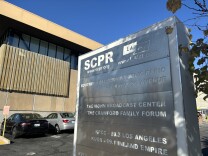
-
Listen Listen

Ted Rohrlich
What I cover
I assist colleagues in scoping out possible projects and in devising reporting strategies, particularly for projects that rely on public records.
My background
I was an investigative reporter for the Los Angeles Times for many years who focused mainly on the criminal justice system and on public corruption. I was a lead reporter on stories that won national honors from the American Bar Association, the Society of Professional Journalists and Investigative Reporters and Editors and that were selected as finalist for one of journalism's highest honors, the Pulitzer Prize for Public Service. For about a decade, I taught courses in investigative reporting at USC's school of journalism. I have also served as research director for a large Southern California labor union, as a political appointee in the Los Angeles city controller's office and as an independent researcher and journalist.
My goals
I want to help bring investigative stories about Southern California to life.
How to contact me
My work email is trohrlich@laist.com. If you are seeking greater privacy, you can reach me through the encrypted app, Signal, where my user name is tro.952.
Stories by Ted Rohrlich
-
Federal prosecutors say the longtime O.C. supervisor has agreed to plead guilty and resign in a conspiracy to steal millions of dollars meant to feed needy seniors, following a months-long LAist investigation and federal probe.
-
Faced with ongoing shortfalls in expected revenues, LAist this week cut the size of its workforce by laying off seven staffers, following a round of buyouts last month.
-
Since the self-crowned “exclusively industrial” city was nearly abolished 12 years ago as too corrupt, an LAist review found good government improvements, persistent environmental problems and a plan to dramatically grow a residential population.
-
The announcement was shared in a memo to staff and over a Zoom meeting on Tuesday.
-
Affordable housing is explicitly exempted from state and local laws that limit the size of rent increases.
-
The work is complicated and can be tediously slow. Affordable housing developers have to overcome major hurdles that market rate developers do not.
-
Is it fair to shower the bulk of subsidies for decent affordable housing on one group while the majority of those in need are left with none?
-
I vowed long ago to look into a key program to see how efficient it was — what I found raises significant questions about a major driver of housing for low- and very low-income families in L.A.
-
A 37-year-old tax credit program intended to get private developers to build affordable units has failed in a fundamental way: It's a bargain people still can't afford.










